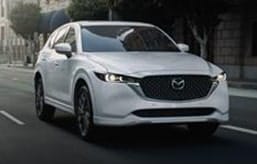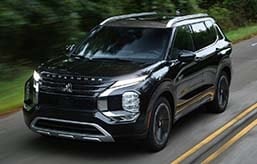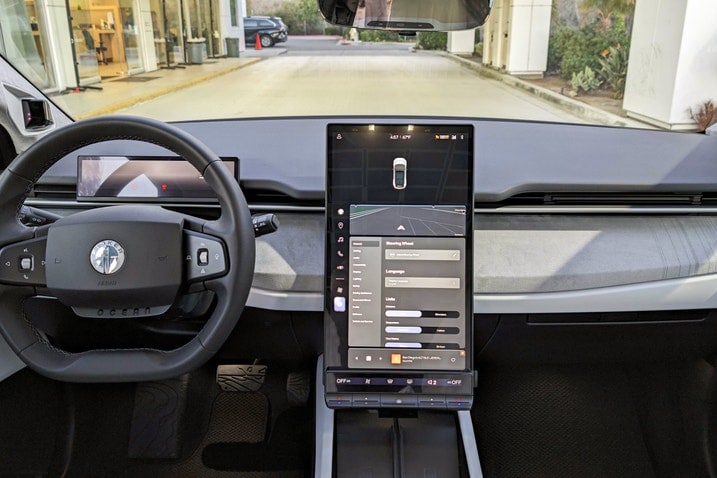- We bought a Fisker Ocean SUV for $69,000 back in January.
- A few months later, Fisker went bankrupt.
- So where does that leave us and our tech-focused SUV?
Life With Our Long-Term Fisker Ocean Is a Beach
Here are some of the many problems we're still having with our $69,000 electric SUV
We bought a Fisker Ocean in mid-January knowing there were bugs to be squashed, kinks to be ironed out … you get the idea. It was a work in progress: A car with good bones but a troubled central nervous system. But what happens when your brand-new SUV is no longer a work in progress, not because the work is completed but because the company doing the work is bankrupt?
It's been nearly three months since Fisker filed for bankruptcy, which came just a couple of months after we decided not to endorse its product. How are things going? Not great!
Here's a sampling of where our Fisker Ocean currently stands. Most of these problems predate Fisker filing for bankruptcy, the majority of which will never be fixed.
The key fob keeps dying
We've replaced the battery in our Fisker Ocean's key fob three times. This is annoying, and not just because getting the fob open to replace the battery is a pain in the neck. Like many electric vehicles, the Ocean does not have a physical key. So, when the fob dies, you need to hold it up against the driver's door handle to unlock the vehicle. This usually works, but we've had instances where the car simply doesn't recognize the fob.
The door handles don't always retract
When the car is locked (or in drive), the door handles retract, creating a flush surface. Or, the handles are supposed to retract. Sometimes the handles, particularly in the rear, decide to remain extended. Pretty cool.
The navigation system thinks we're in Alaska
This is more funny than it is annoying. Upon startup, the navigation system on our Ocean often places us just outside Juneau, Alaska. We've never taken the car to Alaska. And, no, this is not a clever Easter egg teasing the Fisker Alaska pickup truck. We asked.
Our boost counter is incorrect
The Fisker Ocean limits you to 500 uses of "boost mode," which allows you to use all of the power at the electric SUV's disposal. This limit is done in the name of preserving the battery, which is fair enough. But we've now noticed it doesn't always deduct a boost from our tally after we've used boost mode. Come back to us in 400-something boosts and we'll let you know what this means.
Earth mode remains irritating
Earth mode is essentially an "eco mode" for the Ocean, maximizing efficiency rather than power. That makes sense. Its execution … not so much. The Ocean defaults to front-wheel drive when in Earth mode, which can make pulling away from a stoplight a slog. Even thumping the accelerator pedal leads to noticeable lag before the SUV gets going.
This is also problematic for tire wear. Because Earth mode is front-wheel-biased, you run the risk of unevenly wearing your tires. I tend to switch the Ocean into Fun mode (the Goldilocks of the three modes) every time I get into the driver's seat. And you have to do it every time you get in the driver's seat because the Ocean defaults back to Earth mode upon startup.
Your leg will get tired driving the Ocean
The throttle mapping on the Fisker Ocean is not very good, so you'll find yourself depressing the accelerator pedal farther than normal, tiring out your leg in the process. This is particularly annoying in stop-and-go traffic because you're constantly giving a bigger-than-expected shove to the pedal to get the Ocean to get going again.
Oh, and there's no adaptive cruise control
This isn't a bug so much as it is an inexplicably missing feature. Our Fisker Ocean cost nearly $70,000 and didn't come with adaptive cruise control. That makes commuting in the Ocean a pain, but it's especially egregious when you hit the open highway. There's no reason a vehicle that costs this much should be without a feature you can get on a 2019 Honda Civic.
The tech leaves a lot to be desired
Phone pairing remains problematic for the Ocean. It's common for editors to need to delete their phone from the Bluetooth pairing menu and re-add it in order to connect their device. There's also no Apple CarPlay or Android Auto, but again, that's because Fisker believed it had a better system. (It did not.)






 by
by  edited by
edited by